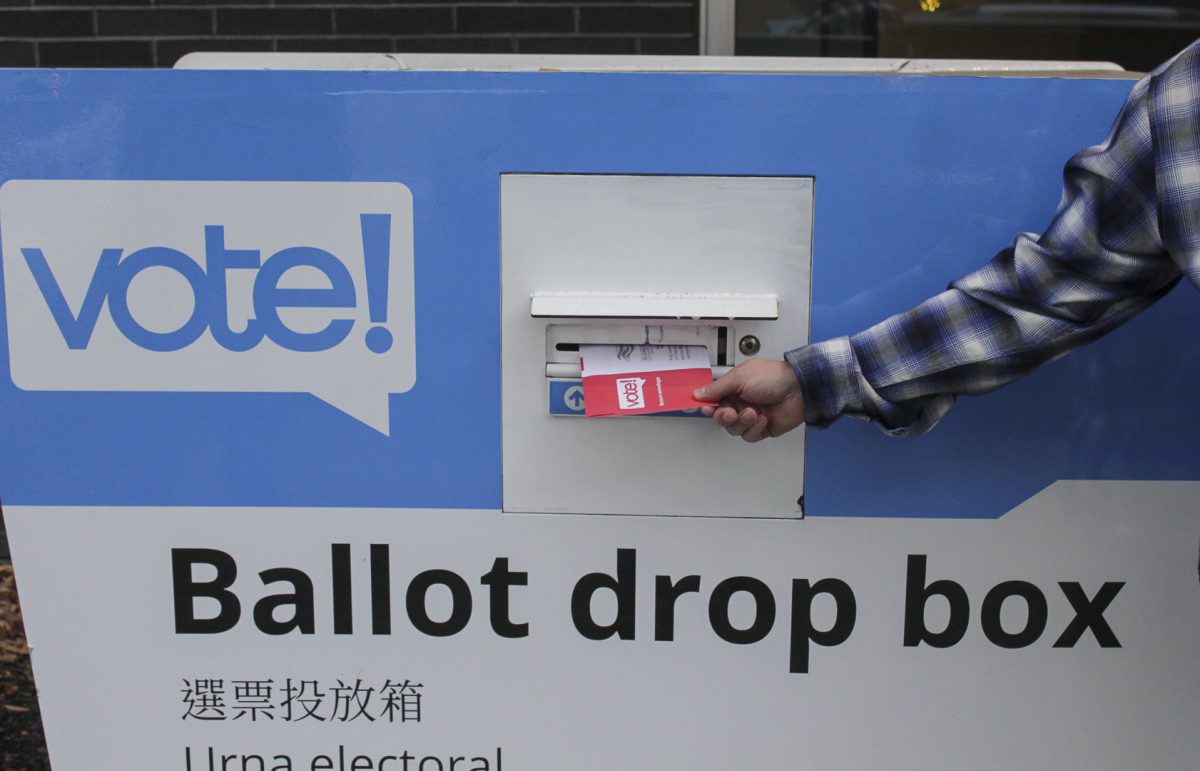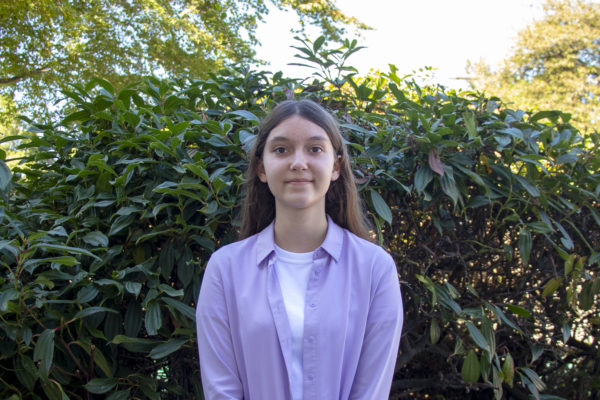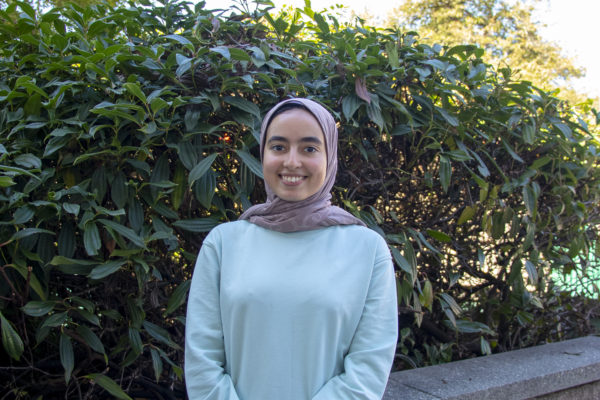During the 2022 congressional midterm elections — which happen every two years and are held within a presidential term — the Center for Information and Research on Civic Learning and Engagement estimates that only 23% of young Americans who were eligible to vote voted nationally. This was a drastic improvement over the 13% of youth voters who voted in 2014 midterm elections, but it’s only the second highest youth voter turnout since 2018, which, at 28%, was the highest it’s ever been since the voting age was lowered to 18 in 1971.
Global Politics and Contemporary World Issues teacher Alexandra Baker (she/her) said she realized the importance of democracy after spending a summer when she was 10 years old in Beirut, Lebanon, a country that operates on a parliamentary democratic republic system. Baker began to question why a place with rich culture, food and customs had a 20-year-long civil war. As she entered her junior year of high school, she said she began to appreciate the importance of voting on global issues.
“When I was a junior in high school, 9/11 happened, and I remember the way that made Americans feel so shocked. I remember the disappointment I felt when my high school United States History teacher couldn’t explain to me why this was happening,” Baker said. “Then I saw my government do things that didn’t align with my values, and I think that was the second moment that made me realize how important voting was — because my government was doing something that I didn’t want them to do.”
Senior Emma Jurado (she/her) said she first registered to vote during a school walkout against gun violence. Jurado said that during the walkout, Pre-IB and IB English teacher Marita White recommended that all the juniors in attendance register to vote.
“That’s when I did it,” Jurado said. “In the middle of the walkout and I thought that was really cool.”
Washington has larger turnouts of young voters in presidential elections than local ones. Tufts University estimates 50% of 18 to 29-year-olds (58% for Washington voters) voted in the 2020 presidential election, an 11 point increase compared to the 2016 election, when only around 39% voted. While many young people understand the importance of voting, some people may only think about voting in the sense of presidential elections.
Junior Jaden Ligaya (she/her) believes it is important to vote since voters influence who makes the rules. She said her main source of information about voting is her parents and that she plans to vote in presidential elections when she turns 18. She said she hears a lot about the presidential election, but not as much about local elections. Local elections in
Baker said she didn’t vote as soon as she was eligible because she didn’t think local elections mattered. She said she thinks most Americans are more concerned about the presidential elections.
“As I’ve gotten older, that has absolutely shifted for me,” Baker said. “Although I pay attention to presidential elections, I have become a huge champion for local elections because to be honest, I have more power in a local election. These local elections are decided sometimes by fewer than 100 votes.”
Jurado doesn’t plan on staying in-state for college and said her participation in local elections is dependent on where she goes for college. Jurado said that if she moves to a rural area, she’ll probably vote in local elections. But if she ends up in a big city, she doesn’t believe local elections would hold much value. Because Jurado doesn’t plan on staying in-state, she or her parents can request an absentee ballot to be sent to her new state.
Baker said she always encourages her students to vote because she believes it’s a privilege to live in a democratic society. For her, honoring that privilege means utilizing it. But she also encourages her students to vote to directly impact the decisions of elected representatives and shape their future world.
Before talking about voting with her students, Baker has them examine their morals and values. She reminds students that if they make decisions that align with those values, they’ll lead a happier life. When decisions are made against those values, Baker said, individual and societal unhappiness emerge.
“Then I ask them to explore the candidates with their values in mind,” Baker said. “What do you see in this candidate? Is this candidate saying that we really need to go back to the good old days? Is this candidate saying that what we need right now is to strengthen and maintain and protect what we already have? Is this candidate saying we need change? [That] the system could be improved upon? Or is this candidate saying we need to throw the system out and create something new that’s never existed before? If that aligns with your values, you should vote for them.”
Baker appreciates how nonpartisan local elections are. This means candidates aren’t classified as Democrat or Republican. She says these elections make her feel empowered because she gets a better chance to read through the candidates’ statements, which are in a small section in a voter’s pamphlet where candidates describe themselves and their policies. This way she gets to understand them better and decide whose policies she agrees with more.
“I honestly think the best way is to meet them yourself,” Baker said. “For example, last night, I had my students host a candidate forum for the Bothell City Council and Kenmore City Council candidates. When you meet these candidates in person, not only do you get to hear them answer your questions, but you also get to see the way in which they treat people and respond to questions from the audience.”
Jurado said she plans on deciding who to vote for by reading what each of the candidates answer for each question, even if it’s a long process. She said she wants to understand everyone’s stances on different topics so she can make the best decisions. Not making an educated vote, Jurado said, is pointless and doesn’t make sense.
“I do think [voting is] important,” Ligaya said. “I feel like you have a say in who makes the rules for the way you live. I feel like it’s important because if you don’t like the rules, that’s kind of your fault, because you didn’t vote.”
You can register to vote at vote.gov by selecting your state and ideal format and following the instructions from there. Once you register, your ballot will automatically be mailed out at least 18 days prior to an election. There are instructions on how to complete the ballot on the ballot. After you fill in your ballot, you can seal it in your return envelope and submit it at a voter drop box around King County or send it in by mail, no stamp necessary. Remember to sign your ballot as Washington State Patrol trained staff verify and count your vote by comparing your signature to the one on your registration record.











